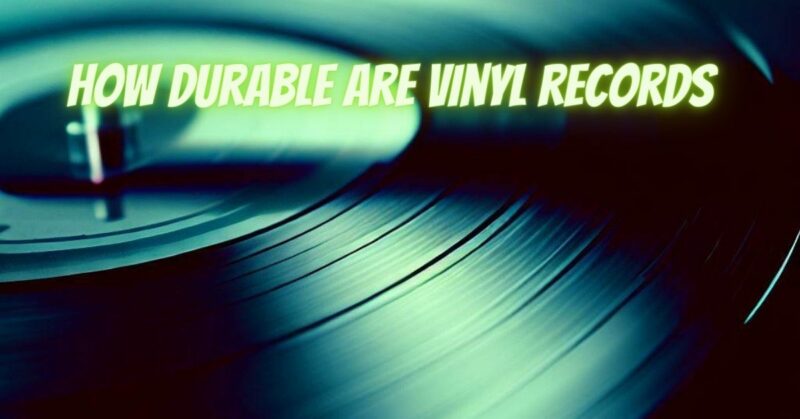Vinyl records have been a staple of the music industry for over a century, captivating audiophiles with their warm sound and nostalgic charm. However, concerns about the durability of vinyl records have persisted throughout their long history. In this article, we will explore the durability of vinyl records, the factors that affect their longevity, and best practices for preserving these cherished analog treasures.
Vinyl Composition and Manufacturing:
Vinyl records are made of polyvinyl chloride (PVC), a type of plastic renowned for its flexibility and moldability. During the manufacturing process, the vinyl material is heated, pressed, and molded into grooves that contain the audio information. These grooves are delicate, and their integrity is essential for maintaining the sound quality of the record.
Durability and Wear:
The durability of vinyl records is influenced by several factors:
- Surface Wear: With repeated use, vinyl records are susceptible to surface wear. Dust, debris, and tiny particles can accumulate in the grooves, leading to surface noise and a gradual decline in sound quality. Proper cleaning and maintenance are crucial to minimize surface wear.
- Scratches and Mishandling: Vinyl records are sensitive to scratches and damage caused by mishandling. Improperly placing the needle or using a worn-out stylus can cause irreversible harm to the grooves, affecting playback quality.
- Warping: Exposure to extreme temperatures can cause vinyl records to warp, leading to distortion during playback. Storing records vertically and away from direct sunlight and heat sources can mitigate the risk of warping.
- Vinyl Quality: The quality of the vinyl material used in manufacturing plays a significant role in a record’s durability. Higher-quality vinyl tends to be more resistant to wear and degradation.
Preservation and Care:
To ensure the longevity of your vinyl records, proper preservation and care are essential:
- Cleaning: Regularly clean your records using anti-static brushes, record cleaning kits, or specialized cleaning machines. Removing dust and debris from the grooves helps maintain sound quality and prolongs the life of the record.
- Handling: Always handle vinyl records by the edges or center label to avoid touching the delicate grooves. Avoid placing the needle on the record too forcefully, as it can cause scratches.
- Storage: Store vinyl records vertically to prevent warping. Use dust-free inner sleeves and protective outer sleeves to shield records from dust and surface damage.
- Environment: Store records in a stable environment with controlled temperature and humidity levels. Avoid exposing them to extreme heat, cold, or direct sunlight.
Vinyl records, when properly cared for, can be remarkably durable and provide decades of enjoyment. Despite their sensitivity to mishandling and surface wear, the warm and rich sound they offer continues to captivate music enthusiasts worldwide. By understanding the factors that affect vinyl record longevity and adopting proper preservation practices, we can preserve these analog gems and experience the timeless pleasure of vinyl for generations to come. Whether it’s the crackling sound of a vintage record or the smooth playback of a newly pressed LP, vinyl remains an enduring symbol of the enduring magic of music on physical media.


